Related Research Articles

Pre-implantation genetic diagnosis is the genetic profiling of embryos prior to implantation, and sometimes even of oocytes prior to fertilization. PGD is considered in a similar fashion to prenatal diagnosis. When used to screen for a specific genetic disease, its main advantage is that it avoids selective abortion, as the method makes it highly likely that the baby will be free of the disease under consideration. PGD thus is an adjunct to assisted reproductive technology, and requires in vitro fertilization (IVF) to obtain oocytes or embryos for evaluation. Embryos are generally obtained through blastomere or blastocyst biopsy. The latter technique has proved to be less deleterious for the embryo, therefore it is advisable to perform the biopsy around day 5 or 6 of development.

John Russell Baird is a Canadian retired politician. He served as Minister of Foreign Affairs from 2011 to 2015 in the cabinet of Prime Minister Stephen Harper. He had been a member of the federal cabinet, in various positions, since 2006. Previously he was a provincial cabinet minister in Ontario during the governments of Premiers Mike Harris and Ernie Eves. Baird resigned from Harper's cabinet on February 3, 2015, and as a Member of Parliament on March 16, 2015.
Reproductive rights are legal rights and freedoms relating to reproduction and reproductive health that vary amongst countries around the world. The World Health Organization defines reproductive rights as follows:
Reproductive rights rest on the recognition of the basic right of all couples and individuals to decide freely and responsibly the number, spacing and timing of their children and to have the information and means to do so, and the right to attain the highest standard of sexual and reproductive health. They also include the right of all to make decisions concerning reproduction free of discrimination, coercion and violence.
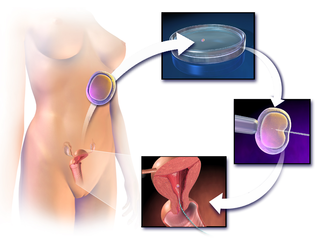
Assisted reproductive technology (ART) includes medical procedures used primarily to address infertility. This subject involves procedures such as in vitro fertilization (IVF), intracytoplasmic sperm injection (ICSI), cryopreservation of gametes or embryos, and/or the use of fertility medication. When used to address infertility, ART may also be referred to as fertility treatment. ART mainly belongs to the field of reproductive endocrinology and infertility. Some forms of ART may be used with regard to fertile couples for genetic purpose. ART may also be used in surrogacy arrangements, although not all surrogacy arrangements involve ART.

Inuit Tapiriit Kanatami, previously known as the Inuit Tapirisat of Canada, is a nonprofit organization in Canada that represents over 65,000 Inuit. Their mission is to "serve as a national voice protecting and advancing the rights and interests of Inuit in Canada."

The American Society for Reproductive Medicine (ASRM) is a nonprofit, multidisciplinary organization dedicated to the advancement of the science and practice of reproductive medicine. The society has its headquarters in Birmingham, AL and a public affairs office in Washington, DC.
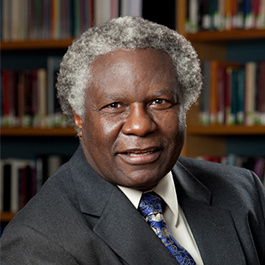
Calestous Juma was a Kenyan scientist and academic specialising in sustainable development. He was named one of the most influential 100 Africans in 2012, 2013 and 2014 by the New African magazine. He was Professor of the Practice of International Development and Faculty Chair of the Innovation for Economic Development Executive Program at Harvard Kennedy School. Juma was Director of the School's Science, Technology and Globalization Project at Harvard Kennedy School as well as the Agricultural Innovation in Africa Project funded by the Bill and Melinda Gates Foundation. His last book, Innovation and Its Enemies: Why People Resist New Technologies. was published by Oxford University Press in 2016.

Postgenderism is a social, political and cultural movement which arose from the eroding of the cultural, psychological, and social role of gender, and an argument for why the erosion of binary gender will be liberatory.
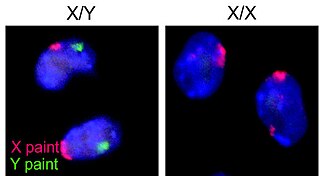
Human reproduction is any form of sexual reproduction resulting in human fertilization. It typically involves sexual intercourse between a sexually mature male and female. During sexual intercourse, the interaction between the male and female reproductive systems results in fertilization of the woman's ovum by the man's sperm. These are specialized reproductive cells called gametes, created in a process called meiosis. While normal cells contain 46 chromosomes, 23 pairs, gamete cells only contain 23 chromosomes, and it is when these two cells merge into one zygote cell that genetic recombination occurs and the new zygote contains 23 chromosomes from each parent, giving them 23 pairs. A typical 9-month gestation period is followed by childbirth. The fertilization of the ovum may be achieved by artificial insemination methods, which do not involve sexual intercourse. Assisted reproductive technology also exists.
The Mental Health Commission of Canada (MHCC) is a national non-profit organization created by the Canadian government in 2007 in response to a senate committee tasked to study mental health, mental illness, and addiction. The committee appointed Michael J. L. Kirby as the first chairperson. The MHCC was endorsed by all the provinces and territories with exception to Quebec. The Commission is funded by Health Canada and has a ten-year mandate enforced through a sunset clause. On 21 April 2015, Minister of Finance Joe Oliver announced that the 2015 federal budget calls for the renewal of the MHCC for another ten-year mandate starting in 2017-2018.

Reproductive justice is "the human right to maintain personal bodily autonomy, have children, not have children, and parent the children we have in safe and sustainable communities," according to SisterSong Women of Color Reproductive Justice Collective, the first organization founded to build a reproductive justice movement. In 1997, 16 women-of-color-led organizations representing four communities of color – Native American, Latin American, African American, and Asian American – launched the nonprofit SisterSong to build a national reproductive justice movement. Additional organizations began to form or reorganize themselves as reproductive justice organizations starting in the early 2000s.
Fertility tourism is the practice of traveling to another country or jurisdiction for fertility treatment, and may be regarded as a form of medical tourism. One can usually be considered as having fertility issues when they are unable to have a clinical pregnancy after 12 months of attempts with intercourse. Infertility, or the inability to get pregnant, affects about 8-12% of couples looking to conceive or 186 million people globally. In some places, rates of infertility surpass the global average and can go up to 30% depending on the country. Areas with lack of resources, such as assisted reproductive technologies (ARTs), tend to correlate with the highest rates of infertility.
Assisted Human Reproduction Canada (AHRC) was a federal regulatory agency that was established in 2006 to protect and promote the health, safety, dignity and rights of Canadians who use or are born of assisted human reproduction technologies. AHRC was created to administer the 2004 Assisted Human Reproduction Act, including gathering information about reproductive technologies and related issues, and disseminating this information to the Ministry of Health, to interested organizations, and to members of the public. AHRC was also tasked with fostering an environment in which ethical principles are applied in all matters related to assisted human reproduction, while supporting scientific advances that benefit Canadians. The agency was led by a President and governed by a Board of Directors.
Patricia Ann Baird, is a British medical geneticist active in Canada. Her research has specialized on the relationship between medical technology and ethics.

Iain Tyrrell Benson is a legal philosopher and practising legal consultant. The main focus of his work in relation to law and society has been to examine some of the various meanings that underlie terms of common but confused usage. His work towards an understanding of secular and secularism has been cited by the Supreme Court of Canada and the Constitutional Court of South Africa. He has also given critical study to the terms pluralism, faith, believer, unbeliever, liberalism and accommodation and examined the implications for various legal and non-legal usages.
LGBT parents in Canada have undergone significant progress in terms of both legal and social acceptance. Same-sex couples who wish for parenthood now enjoy equally the possibilities, responsibilities and rights of opposite-sex couples. Following the nationwide legalization of same-sex marriage in 2005, the number of LGBT families in Canada has increased substantially, paving the way for same-sex couples' aspirations of having their own children. Legal methods of assisted reproduction range from insemination via IVF through to surrogacy arrangements.

Françoise Elvina Baylis is a Canadian bioethicist whose work is at the intersection of applied ethics, health policy, and practice. The focus of her research is on issues of women's health and assisted reproductive technologies, but her research and publication record also extend to such topics as research involving humans, gene editing, novel genetic technologies, public health, the role of bioethics consultants, and neuroethics. Baylis' interest in the impact of bioethics on health and public policy as well as her commitment to citizen engagement]and participatory democracy sees her engage with print, radio, television, and other online publications.
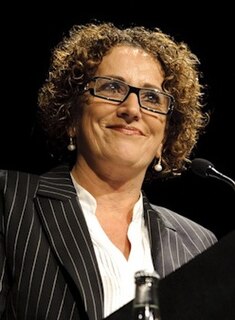
Helen Veronica Szoke is the former Chief Executive of Oxfam Australia, and a commentator and advocate on issues of human rights, poverty, inequality, gender and race discrimination. Throughout her career, she has held leadership roles across the health sector, human rights and public policy, and international development sector.
Susan GolombokFBA is Professor of Family Research and Director of the Centre for Family Research at the University of Cambridge, and Professorial Fellow at Newnham College, Cambridge. Her research on new family forms has contributed to theoretical understanding of family influences on child development and has addressed social and ethical issues that are of relevance to family life.
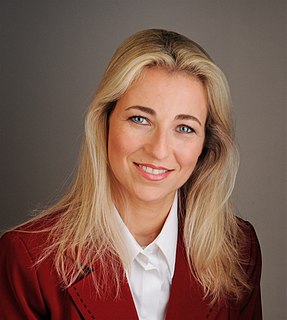
Vardit Ravitsky is a bioethicist, researcher, and author. She is a Professor at the University of Montreal and a part-time Senior Lecturer on Global Health and Social Medicine at Harvard Medical School. She is the Director of Ethics and Health at the Center for Research on Ethics, the President of the International Association of Bioethics, and a Fellow of the Pierre Elliott Trudeau Foundation, where she Chairs the COVID-19 Impact Committee. She is also Fellow of The Hastings Center and of the Canadian Academy of Health Sciences.
References
- ↑ Royal Commission on New Reproductive Technologies (1993). "Proceed with Care". 1. Ottawa: 2.Cite journal requires
|journal=(help) - 1 2 Sonya Norris and Marlisa Tiedemann (6 September 2011). "Legal Status at the Federal Level of Assisted Human Reproduction in Canada".Cite journal requires
|journal=(help) - ↑ Cox, Sue (Winter 1993). "Strategies for the Present, Strategies for the Future: Feminist Resistance to New Reproductive Technologies". Canadian Woman Studies . 13 (2): 25–28.